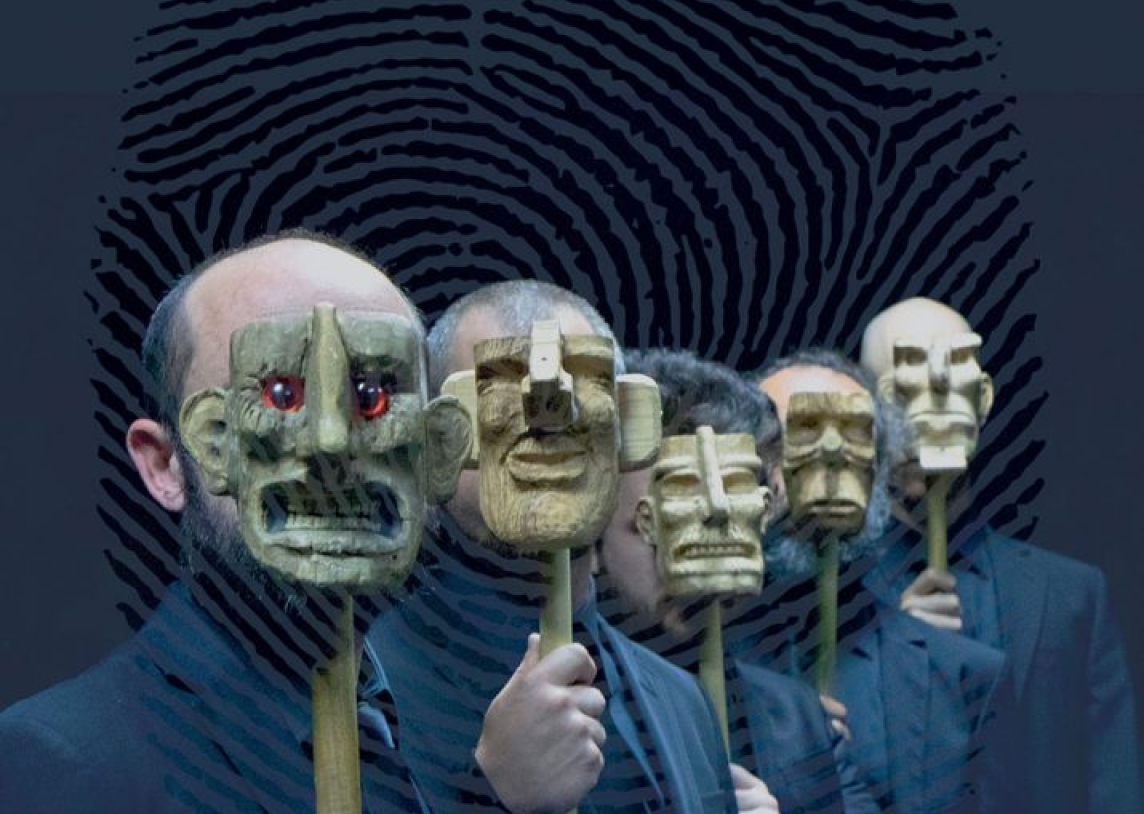- International Platform
- Content
Content
An Irresistible Game of Conventions
Author: Igor Tretinjak
In its “Oedipus the King”, Rijeka has found the key to conquering a seemingly unconquerable audience – teenagers. They achieved this with a modern approach to puppet and puppetry, playing in a layered, clever and witty way with all the elements of this performance gem.
Following the changes in the puppetry scene, the most important historian and theorist of European puppetry Henryk Jurkowski concluded almost half a century ago that the focus of this artistic expression shifted from the puppet itself to its relationship with the puppeteer. Thus, the puppet’s constant stage liveliness was replaced by the tension between liveliness and lifelessness. At that time, puppetry stripped itself of tradition which protected it for centuries through social turmoil and became a contemporary artistic expression in the constant movement, and we can also say, in the rejection of boundaries.
Half a century after Jurkowski's redefinition, puppetry in Croatia still largely belongs to a long-overdue tradition, and each layered game of the puppet and its animator is observed under a special magnifying glass. Unaware of Croatian circumstances, director Luciano Delprato arrived from Argentina with the contemporary direction of the puppetry version of “Oedipus the King”, in which he played with all the elements in an infinitely wise, clever and witty way. And he did that by addressing those who are the most difficult to bring to the theater, and who represent the potential audience of tomorrow - teenagers. So, let’s start.
In a play that can be placed alongside the freshest puppetry outgrowths of this area, the director, with the help of playwright Nataša Antulov, shaped the famous Sophocles’ tragedy with the ancient choir in mind, relying on a centuries-old puppetry tradition – separating voice from movement. All the actors took the place of the speaker, almost radio-dramatically shaping the verbal layer and enriching it with humor, their own notes and a discreet but very effective dialogue with the stage play, i.e. with their own other half.
In the second, performance half, Delprato made a big turn from tradition to modernity, focusing on the layered relationship between the puppet and its animators, who carried the play in extremely witty miniatures, demonstrating to young viewers the puppetry they want to see. Puppetry in which a puppet in a furious rhythm in a humorous way changes roles and ontological status – from props, through a living character in the hands of an animator to his equal partner and finally ruler. This rare triumph of the puppet over his own demiurge in Croatian puppetry took place in a supreme stage tension in which Oedipus uses physical force against everyone, from puppets to animators and their crotches, only to overpower his stage father in the end, taking matters into his own wooden hands and taking over his own demiurge. And he did it all in an extremely witty way, freeing the puppet of default and boundaries and pointing out her inexhaustible sense of humor.
The richness and layering of the performance were shaped in a very convincing way by the actors of the Croatian National Theater Ivan pl. Zajc, a theater that was brave enough to stage a puppet show for teenagers in a national theater, on which I congratulate them and hope that Oedipus will not be the only one. Members of the Croatian National Theater, Edi Ćelić, Dean Krivačić and Mario Jovev demonstrated their auditory, animation and acting skills, with important reinforcement from the members of the Rijeka City Puppet Theater such as Alex Đaković and Damir Orlić. From the beginning to the end of the play, the actors functioned like a well-tuned and well-coordinated machine, which is extremely important in (modern) puppetry where even the slightest shift or departure from the task disrupts the rhythm of play and stage life. Within that harmony, each actor added his own note to the narrative part, from the seeming seriousness to the penetration into the caricature, as well as into the animation layer. Thus, Krivačić, Jovev, Đaković and Orlić shaped the performance layer in a dialogue, and occasionally in a witty conflict with words, very amusingly playing with it, while Ćelić waited for the impulse of words, leaning the puppet’s stage life on the auditory in a fine flow of stage energy. This diversity worked great and reinforced an element that seems to me to be one of the key elements of stage play for teenagers - constant stage surprises.
The table puppets made by Stjepan Buković, Vladimir Tomić, Željko Kranjčević Winter, Rajna Gruden, Ana Blašković and Snježana Jurić were in harmony with the whole – humorously rigid and awkward, adapted to the characteristics of the characters and vivid on stage. Rafael Rodriguez underlined the duality of the performance with the lighting, illuminating the auditory and the performatively interesting speakers separately, thus separating the two parts of the whole – the voice from the body, which contributed to the theatricalization of this theatrical gem.
In conclusion, in its Oedipus the King, Rijeka has found the key to conquering a seemingly unconquerable audience – teenagers. They achieved this with a modern approach to puppet and puppetry, playing in a layered, clever and witty way with all the elements of this performance gem.
This publication is written in the context of the project "European Contemporary Puppetry Critical Platform"

